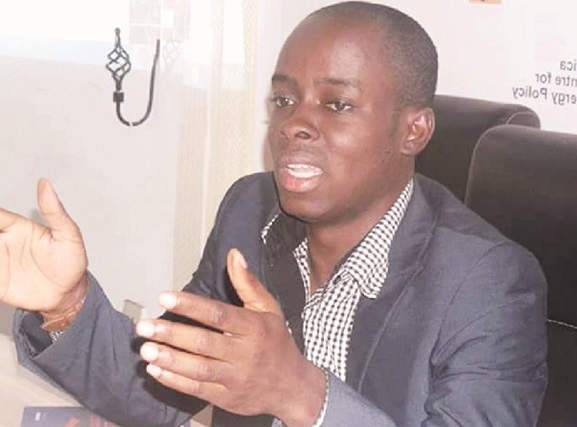
Govt gets thumbs-up over oil revenue spend - focuses on pro-poor sectors
The Africa Centre for Energy Policy (ACEP) has lauded the government for its decision to spend oil revenues on pro-poor sectors of the economy for the next three years. The new priority areas of the new administration, ACEP said, was a shift from the practise where oil revenues was used to finance expenditure and loans in the sector to specific sustainable development initiatives.
The Energy Policy Advisor of ACEP, Dr Ishmael Ackah, in an interview said investments in the pro-poor sectors of any economy had the ability to impact lives of people, in line with expectations of the use of oil revenues.
“If you spend a dollar or a cedi on pro-poor areas, it affects everybody. If we are using oil revenues to improve education, health system or even agriculture to boost production, it affects everyone.”
“It achieves the purpose of the petroleum revenue management law which says that the oil is supposed to be used to fast track the rate of economic development and promote even and balanced development,” he said on March 9.
He added that spending oil revenues in those areas reduced inequality and poverty because it gave focus in terms of oil revenue expenditure.
“Now that we have specific sectors, it will help limit overspreading oil revenues. It can also help to track revenues. Because we know that now we have just about four and there is no other,” he said.
A statement issued and signed by its Deputy Executive Director, Mr Ben Boakye, on March 9 said “the priority areas reflect ACEP’s persistent advocacy for oil revenue investment in pro-poor sectors of agriculture, education and health. We take particular notice of the fact that about 53 per cent of the Annual Budget Funding Amount (ABFA) will be spent in the pro-poor sectors.”
It added that it was clear that government had moved away from using ABFA to finance expenditure and amortisation of loans for oil and gas infrastructure, which was one of the priority areas until 2016.
“In 2016, Ghana Gas financed its loan obligations through the sale of the liquids (propane, etc.) it processed. Overall, it appears that more money will be freed for specific sustainable development investments,” the statement added.
New priority areas
The finance minister presented four new priority areas for the spending of the ABFA spanning 2017-2019 in line with the PRMA.
The selected priority areas are agriculture, physical infrastructure and service delivery in education, physical infrastructure and service delivery in health and road and rail infrastructure development.
The revision of the priority areas is to give focus to infrastructure development in critical areas of the economy.
Trackable expenditure
The statement said goods and services expenditure of the ABFA were precise and trackable, explaining that the education sector would receive about 26.5 per cent of ABFA, constituting 88.6 per cent of ABFA allocation to goods and service in 2017.
This is the amount to be spent on the government’s flagship free SHS policy from oil revenue.
“For the first time, there is greater clarity on what exactly the recurrent expenditures of the ABFA will go into. This helps to track impact of not just the portion that goes into physical infrastructure but also recurrent expenditures,” it said.
The statement added that “investing in education, in particular, fits into the key objective of the PRMA in Article 21(2) (b) to promote equality of economic opportunity with a view to ensuring the wellbeing of citizens.”
Funding for PIAC
ACEP also believes that funding provisions in the budget for the Public Interest and Accountability Committee (PIAC), the committee with oversight responsibility over the prudent management of the country’s petroleum revenues, is commendable.
For the first time, PIAC received full disbursement of its budget from the ABFA to the tune of GH¢960,000 in 2016, following the 2015 amendment to the PRMA to provide funding to support PIAC’s work. The funding allocation to PIAC has almost doubled to GH¢1,900,000 in 2017.
“ACEP wishes to commend the previous and current governments for heeding civil society call for adequate funding for PIAC to strengthen its oversight responsibilities prescribed by law. This will help shift the focus from lack of funding to ensuring that PIAC delivers on its mandate,” the statement said.